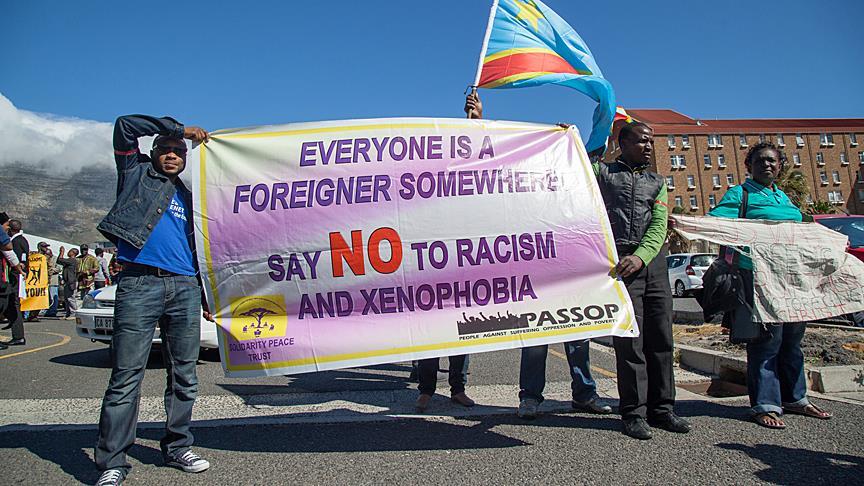 After breaking free from decades of apartheid – with the support of their fellow Africans – many South African blacks have become hostile to black African migrants in their country – a phenomena some experts attribute to growing frustration over the lack of jobs and economic inequality. (file photo)
After breaking free from decades of apartheid – with the support of their fellow Africans – many South African blacks have become hostile to black African migrants in their country – a phenomena some experts attribute to growing frustration over the lack of jobs and economic inequality. (file photo)
South Africa
By Shu’eib Hassen
CAPE TOWN, South Africa
The shortcomings of South Africa’s 1996 Truth and Reconciliation Commission came into spotlight at a panel organized by the Institute for Justice and Reconciliation in the South African city of Cape Town Monday evening.
Several participants said the commission’s main purpose was to restore dignity of apartheid victims as well as provide amnesty for individuals, from both civil and criminal prosecution, for acts committed during that dark period of South African history. However, they lamented that apartheid continues to exist in the country despite many sacrifices made by world renowned civil rights leaders.
Head of the Safety and Justice Program at the Social Justice Coalition, Chumile Sali, told Anadolu Agency: "Apartheid is still here, The systemic structure of our polarized resources for whites and blacks show this."
Citing an example of discrimination which still exists in the country, he claimed that in the black townships of South Africa, there is just one policeman for every 1,043 persons, while in the white suburbs there is a policeman per 173 persons.
South African writer Osiame Molefe also said the commission had failed the people.
Molefe argued that it accounted only for violence beyond apartheid law and, thus, excused the oppressiveness of apartheid.
"The TRC [Truth and Reconciliation Commission] is where the truth of apartheid went to be buried," he said, adding: "Ethics should not be put aside. Even if we change nothing, we should not forget the past."
Not everyone thought the commission was a failure, especially given the fact that it was largely accepted as a success by the global community due to its peaceful method of healing the country’s wounds.
According to the Institute for Justice and Reconciliation’s executive director, Dr. Fanie du Toit, "It unmasked apartheid in a way that it has not been revealed before."
But Du Tout also noted the "betrayal" within the reconciliation process. "White leadership negotiated the end of apartheid. The country cried out for an apology but the sense of personal responsibility for this war was absent," he said.
Panelists also noted a lack of implementation of the commission’s recommendations. Only one of the commission’s restorative reports was taken forward by South African parliament, in which it only paid a third of the amount recommended for victims’ families.
Anadolu Agency website contains only a portion of the news stories offered to subscribers in the AA News Broadcasting System (HAS), and in summarized form. Please contact us for subscription options.





